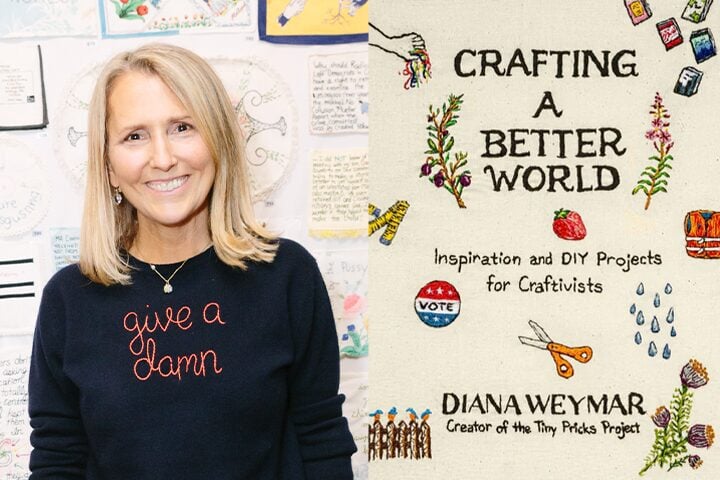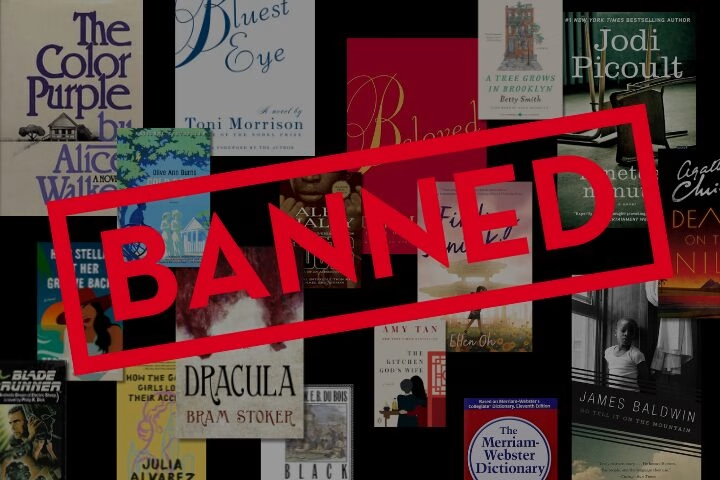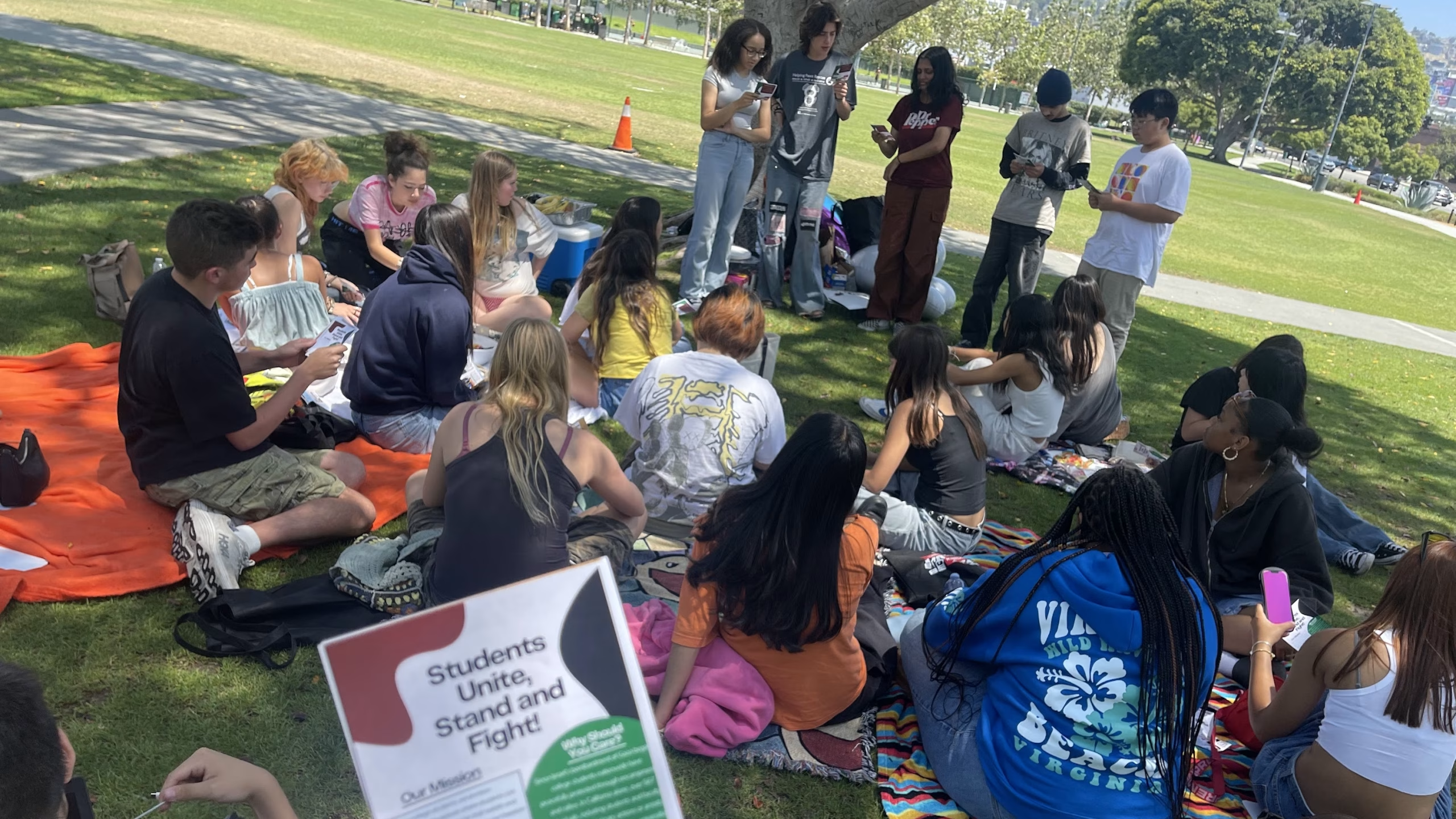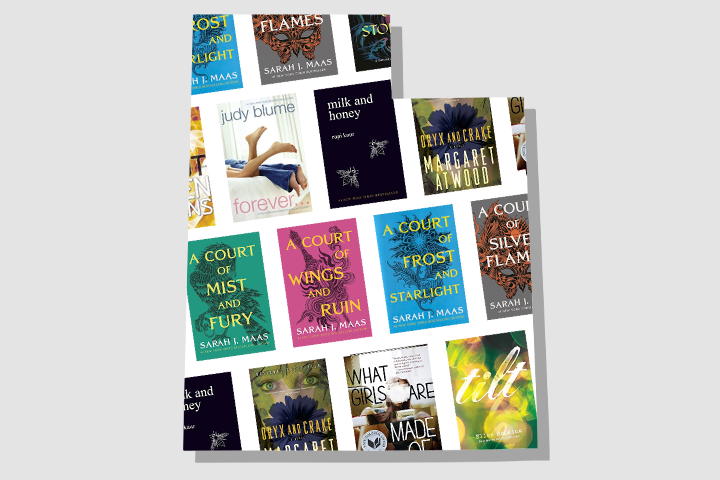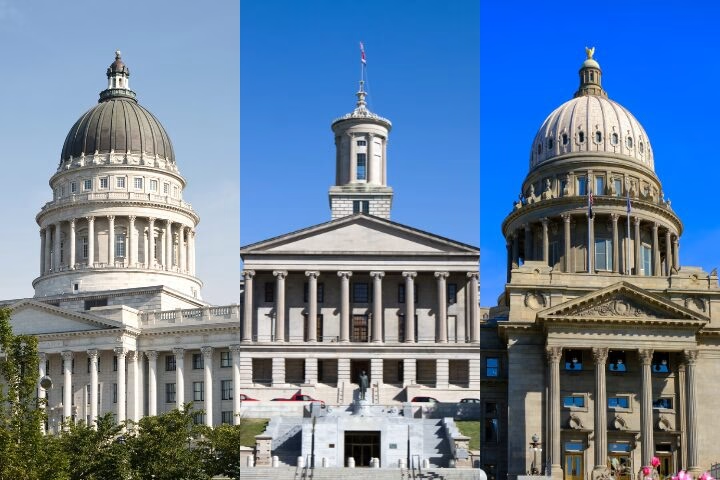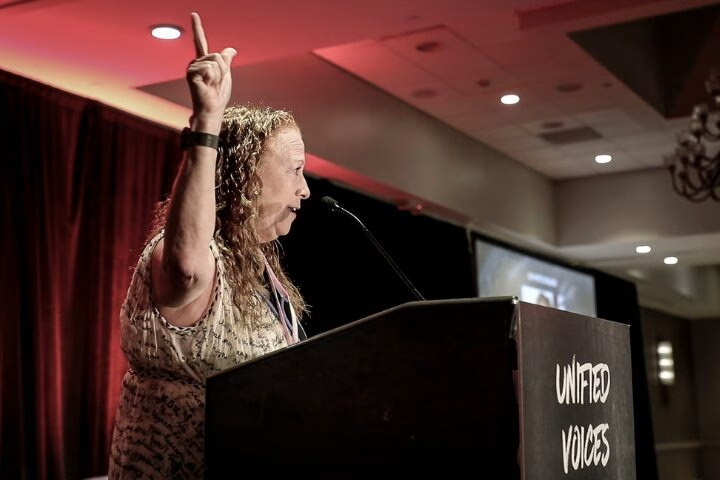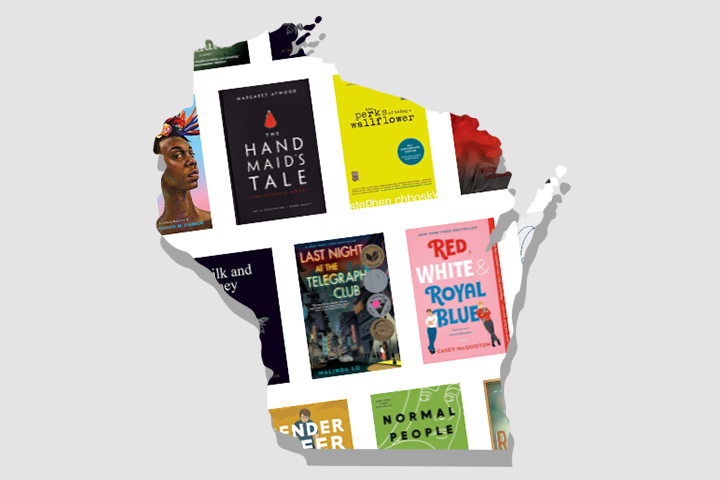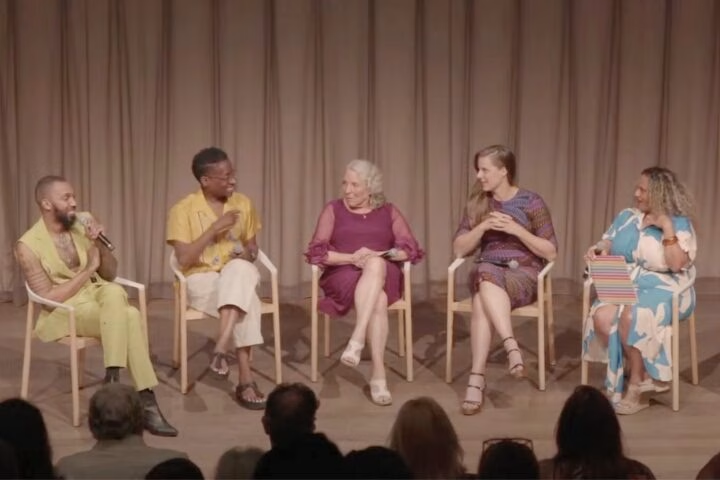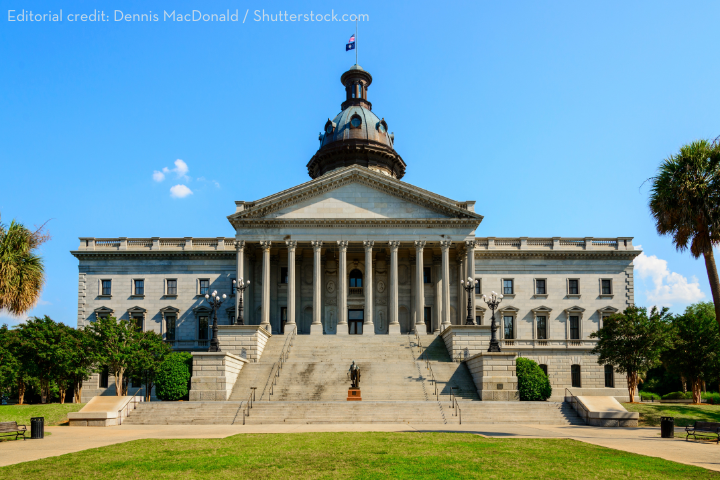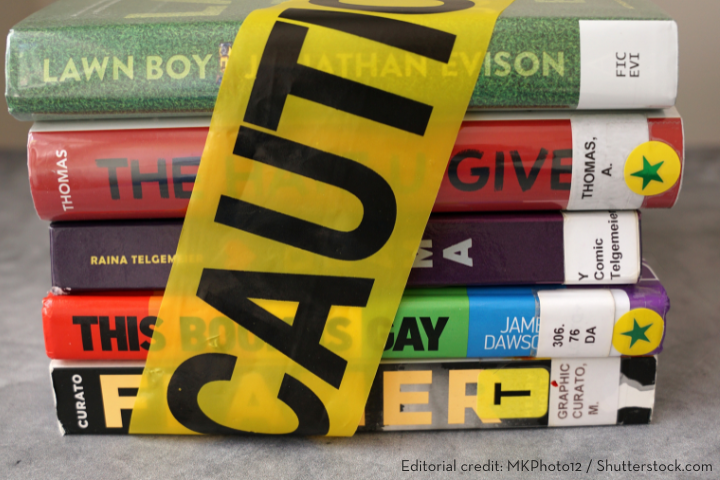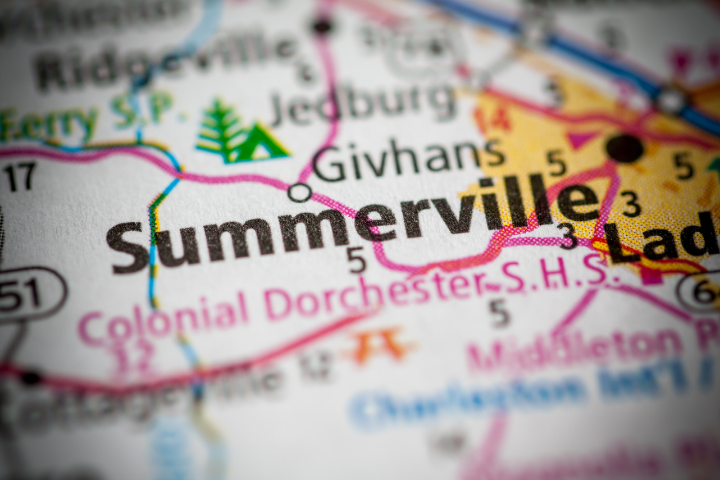With new PEN America figures revealing a dizzying rise in school book bans – more than 10,000 during the 2023-2024 school year – writers, readers, parents, educators, librarians, and activists gathered across the country for Banned Books Week 2024 to defend the right to read.
PEN America proudly endorsed a resolution from U.S. Rep. Jamie Raskin and Sen. Brian Schatz supporting Banned Books Week and joined with fellow advocacy groups including We Believe and EveryLibrary to invite readers to send letters to their elected officials to demand action against rampant censorship.
Award-winning authors Rex Ogle, Elana K. Arnold, Peter Parnell, and Abdi Nazemian, grammy award-winning musician Joanie Leeds, and journalists Kelly Jensen of Book Riot and Mike Hixenbaugh of NBC News were among the panelists convened for events in Florida, Texas, Utah, California, and other states that have become the epicenter of the book-banning crisis. In San Francisco, authors Dave Eggers and Ipek Burnett joined a screening of the MSNBC film To Be Destroyed.
Although polls show most Americans reject book bans, the number of books pulled from shelves more than doubled in the 2023-2024 school year. In Dallas, Laney Hawes, co-founder of Texas Freedom to Read Project, recounted that her four children’s district has banned dozens of books, “up into the hundreds, if you talk about the books that they will never now buy.” Among the books restricted in the Keller Independent School District were Anne Frank’s Diary: The Graphic Adaptation and any book that includes a character who is nonbinary or trans.
“I still remember one mother who got up and said, ‘I have a son who is trans. … You know, we’ve had to – my husband and I and our family – had to protect our child against bullies his entire life because of what’s going on. But we never expected those bullies to be our children’s school board.’”
The wave of censorship across the country has targeted books from picture books to young adult and classic novels that reflect LGBTQ+ identities or discuss race and racism, using hyperbolic rhetoric about “porn in schools” to justify banning books about sexual violence, sexual experiences, and LGBTQ+ identities. Jensen emphasized that book bans are not just about books, “but about something bigger.”
U.S. Department of Education Deputy Assistant Secretary Matt Nosanchuk, who leads the Biden administration’s response to school book bans, said at the event in Austin that fighting censorship in schools is a natural part of defending students’ civil rights.
“When students fail to see themselves, their history, or their identity reflected in the books that they read, the authors whom they read, they are being denied equal opportunity to access education,” he said.
Nosanchuk was joined in Austin by Becky Calzada, District Library Coordinator for a Texas school district, co-founder of #FReadom Fightersm and current President of the American Association of School Librarians and Frank Strong, Texas educator and co-founder of Texas Freedom to Read Project and Hixenbaugh. The conversation was moderated by Kasey Meehan, PEN America’s Freedom to Read Program Director and hosted by PEN Austin Chapter Leader, Tim Staley, Executive Director of the Austin Library Foundation.
Both Strong and Calzada talked about ways individuals can join the fight against book bans. Strong emphasized maintaining best practices for book reviews, “we’ve seen when books are read in committees, they are almost always returned to the shelves because librarians are not putting porn in libraries, they are putting books that are there for a reason…so we need more of that.”
The drive to censor what students can read comes from a well funded movement that’s been seeking to Christianize America, said Hixenbaugh, whose book They Came for the Schools documents book bans in Southlake, Texas.
“This is a foundational fight about who we are as a country,” Hixenbaugh said at the Dallas event. He noted that Project 2025 lays out plans to abolish the Department of Education and strip it of its power to enforce civil rights laws, and pointed to far right legal activists who look for test cases to bring to the Supreme Court, like the case that led to the overturning of Roe v. Wade. “And so when you look and see a school board hiring that law firm to help them with civil rights complaints or to file a lawsuit on their behalf, that sends a signal about what’s going on.”
Hixenbaugh, who was a panelist with Nosanchuk in both Austin and Dallas, was joined by Hawes and Jensen in Dallas in a conversation moderated by author, professor, and PEN Dallas Chapter Leader, Sanderia Faye.
In Utah, Rex Ogle, Rebekah Cummings and Peter Bromberg talked about the state’s HB29 “Sensitive Material Review” that has created a “no-read list” of 13 books statewide. “As author Shannon Hale has said, ‘In cultures where even discussion of sex is taboo, predators flourish,” Bromberg said.
The week kicked off with a virtual panel featuring student organizers and adult accomplices from over 15 states. Organized by PEN America’s Freedom to Read Program Assistant, Madison Markham, and moderated by author of And Tango Makes Three, Peter Parnell, student representatives from youth groups in South Carolina, Pennsylvania, California, and Texas joined organizers from across the country to share their experience and strategies for combating books bans.
The week also included two Freedom to Read Student Summits organized by PEN America’s Program Manager for Free Expression, Niko Perez, where students learned about the latest book ban data, assessed emerging censorship trends, and discussed ways to effectively advocate for free expression and access to diverse literature in our communities. Special guests included award-winning author Sherri L. Smith, the youth-led Golden State Readers, and Pickle, the Drag Laureate of the City of West Hollywood.
In Florida, PEN America joined with Nova Southeastern University for a workshop, Citizen Voices: Navigating Book Bans and a panel discussion about the oft-banned classic One Hundred Years of Solitude. Days earlier, Grammy-winning songwriter Joanie Leeds performed songs from her album FREADOM, based on banned childrens’ books. In Tulsa, paper weavings by the artist Ellis Angel were on display at Magic City Books.
PEN Arizona Chapter Leader Michelle Beaver spoke at two Banned Book Week events near the southern U.S. border, both organized by a PEN America Freedom to Read Ambassador alumnus Samuel Vaughn. Both events gave PEN an opportunity to speak about book banning issues with residents in smaller, rural communities who often feel isolated, ignored, and invisible within the larger national media landscape.
A virtual panel discussion, From Howl to Now: Book Bans in the U.S. During Banned Books Week, City Lights and PEN America bring together authors, librarians, and student activists to discuss the alarming rise in book bans across the country. They share insights, observations, and methods to counter the suppression of books that address issues pertaining to race, gender, and sexuality. Ever timely, their conversation is a powerful call to action to stand up for the freedom to read.
This online event featured Ipek Burnett, PEN America Free Expression Chief Program Officer Summer Lopez, democracy researcher and advocate Trey Walk, co-founder of the History Book Festival and First Amendment Salons, Ronald K.L. Collins, and former law professor David Michael Skover. The week closed with an event at Barnes & Noble The Grove with Ogle, Nazemian, and Arnold, moderated by PEN America Los Angeles Director Allison Lee.
Banned Books Week is a joint effort by advocacy organizations including the American Library Association, Comic Book Legal Defense Fund, Little Free Library, National Council of Teachers of English, National Coalition Against Censorship, PFLAG, and many more individuals and groups to increase awareness about censorship attempts and to defend the freedom to read.
Our major takeaway? “We need to move past awareness and into action,” Calzada said at the panel event in Austin.

